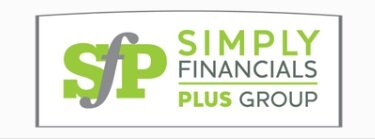As Halloween approaches, the last thing you want lurking in your business is a ghost from the past—unpaid invoices. Unsettled accounts can spook even the most successful businesses, causing serious cash flow problems that feel like they’ve come straight out of a horror story. But don’t worry—you don’t have to be haunted by unpaid invoices! With the right strategies, you can keep your accounts receivable in check and avoid those terrifying financial surprises.
Here are some practical tips to ensure unpaid invoices don’t come back to haunt your business:
1. Set Clear Payment Terms from the Start
Before you even issue an invoice, make sure your clients understand your payment terms. Spell out everything—when payment is due, accepted payment methods, and any penalties for late payments. This clarity will reduce the likelihood of payment delays and set the foundation for a smooth transaction.
Consider adding specific clauses such as:
Net 30 or Net 15 Terms: Clearly stating the due date helps eliminate confusion.
Late Fees or Interest Charges: Charging a small fee for overdue invoices can incentivize clients to pay on time.
Upfront Deposits: For large projects, requiring a deposit can reduce the risk of non-payment.
2. Automate Invoicing to Avoid Delays
Late or inconsistent invoicing can lead to late payments. One of the most effective ways to stay on top of this is by automating your invoicing process. Cloud accounting software such as QuickBooks allows you to create, send, and track invoices quickly. You can even schedule automatic reminders to follow up on unpaid invoices.
Automation not only speeds up the process but also reduces human error—making sure invoices go out on time and are correctly documented. Plus, it frees up your time to focus on other aspects of your business.
3. Send Reminders Before the Due Date
Don’t wait for an invoice to become overdue to start chasing it down. Sending a friendly reminder a few days before the due date can prompt clients to make timely payments. Most people don’t want to be late; they might just need a little nudge to keep them on track.
Consider scheduling an email reminder that says something like:
"Just a Friendly Reminder!" Let them know the due date is approaching and that you’re happy to answer any questions about the invoice.
“Your Payment Is Due in 3 Days." A professional yet polite message can prompt action before any delays occur.
4. Follow Up Promptly on Late Payments
If a payment does slip past the due date, it’s crucial to follow up quickly and professionally. The longer you wait, the harder it can be to collect. Start with a gentle reminder, but if you don’t hear back, escalate the tone of your communication as necessary.
Here’s a recommended sequence:
Day After Due Date: Send a polite email reminder.
1 Week Late: Follow up with a more urgent email or phone call.
2 Weeks Late: Send a more formal notice that outlines the consequences of non-payment, such as late fees or possible suspension of services.
5. Offer Flexible Payment Options
To avoid delays, offer a variety of payment options. Some clients prefer paying via credit card, while others might be more comfortable with ACH transfers or digital wallets like PayPal. By giving clients multiple ways to pay, you remove any potential barriers and make it easier for them to settle their invoices quickly.
6. Monitor Your Accounts Receivable Regularly
Keeping an eye on your accounts receivable is key to making sure unpaid invoices don’t slip through the cracks. Regularly review your aging reports to identify overdue invoices and follow up accordingly. This way, you can stay on top of things and prevent unpaid invoices from becoming a financial nightmare.
Many accounting platforms allow you to generate reports that show you how long invoices have been outstanding. Use this data to prioritize your follow-up efforts and adjust your strategies if necessary.
7. Consider Offering Early Payment Discounts
A little incentive can go a long way in speeding up payment. Offering a small discount for early payments can encourage clients to pay before the invoice is due. For example, you could offer a 2% discount if the invoice is paid within 10 days.
This small financial incentive is often enough to motivate clients to pay early, giving your business a much-needed boost in cash flow.
8. Know When to Escalate to Collections
In the unfortunate case that an invoice remains unpaid after multiple follow-up attempts, it may be time to escalate the issue. While you want to maintain a good relationship with clients, there are times when turning to a collection agency or pursuing legal action may be necessary.
Before going down this road, make sure you’ve documented all attempts to collect the payment. Having this information handy can make the process smoother should you need to escalate further.
Don’t Let Unpaid Invoices Haunt Your Business
Unpaid invoices can feel like ghosts looming over your business, threatening your financial health. But by setting clear terms, automating your invoicing, and staying on top of follow-ups, you can keep those invoice ghouls from creeping up on you. The key is to be proactive, professional, and persistent when managing your accounts receivable.
So, as Halloween approaches, take these steps to make sure your cash flow isn’t haunted by unpaid invoices—and rest easy knowing you’ve tamed the financial monsters lurking in the shadows!
